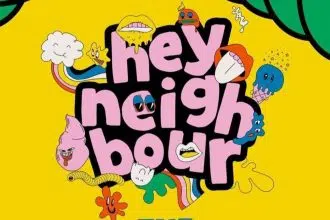When buying a car—especially from a new or lesser-known brand—it’s easy to get swept up in futuristic designs, cutting-edge features, and tempting price tags. But in South Africa’s car market, one key factor is often overlooked by eager buyers: resale value. And ignoring it can be an expensive mistake.
According to Obi Mokoditwa, used sales manager at Eagle City group of dealers in Johannesburg, this is a common trap for consumers. While new automotive brands may offer impressive specifications at an attractive cost, the unfamiliarity of these vehicles in the local market can work against buyers when it’s time to sell or trade in.
To illustrate his point, Mokoditwa recalls an incident from early 2025. A customer who had purchased a R680,000 vehicle from a relatively unknown brand in December walked into the dealership just three months later, hoping to trade it in. The car had barely 3,000km on the clock—essentially brand new.
But when Eagle City reached out to the relevant franchise dealer to assess the trade-in value, the response was startling: R380,000. That’s a R300,000 loss in just 90 days—a 44% depreciation. “Initially, I thought there had been a mistake,” Mokoditwa said. “But the figure was accurate. And this wasn’t an isolated incident.”
While it’s widely accepted that new cars depreciate as soon as they leave the lot—typically by around 20% in the first year—this case highlights the risk of buying from new brands that haven’t yet established credibility or market trust in South Africa.
The Hidden Cost of Chasing a Bargain
The story underscores a crucial point: buying a car is not just about what you pay upfront, but about the total cost of ownership—including how much value the car will retain down the line.
Established automotive brands generally command better resale prices thanks to their proven track record in reliability, spare parts availability, aftersales service, and demand in the pre-owned market. This consistency helps maintain stronger trade-in values and provides buyers with more financial stability over time.
“When it comes time to part ways with your car—whether in one year or ten—you want to know you’re not going to take a massive financial hit,” Mokoditwa said.
The Role of Trusted Dealerships
Partnering with a reputable dealer is equally important. A good dealership will offer honest insights into what you can expect from a vehicle in the long term. That includes explaining depreciation, insurance premiums, maintenance costs, and access to parts.
“They’ll help you understand the full picture—not just the price on the windshield,” said Mokoditwa. “And if your situation changes unexpectedly, you’ll have someone to turn to.”
Not All New Brands Are Bad
To be fair, Mokoditwa is not completely dismissive of all newcomers in the market. Some may serve niche needs very well and offer decent value for money. But the key is to approach the purchase with full awareness—not just dazzled by flashy tech or a low price.
“Ask yourself what that vehicle will be worth in three or five years,” Mokoditwa advised. “A small saving today can pale in comparison to a massive loss tomorrow.”
In the rapidly evolving South African car market, buyers need to think beyond immediate appeal. Resale value should be a top consideration when purchasing a vehicle—especially from emerging brands. By doing your homework and partnering with a trusted dealer, you can make a choice that serves your needs now and protects your investment later.
Beyond the Showroom: Why Resale Value Should Drive Your Car Buying Decision
While a car’s design, features, and price can be compelling at first glance, resale value is what ultimately safeguards your investment. A vehicle that holds its value well can save you thousands when it’s time to sell or trade in—making it just as important as performance or aesthetics when choosing your next ride.
Related article: Used Sports Cars vs. Brand-New Everyday Cars: Which Should You Choose?













